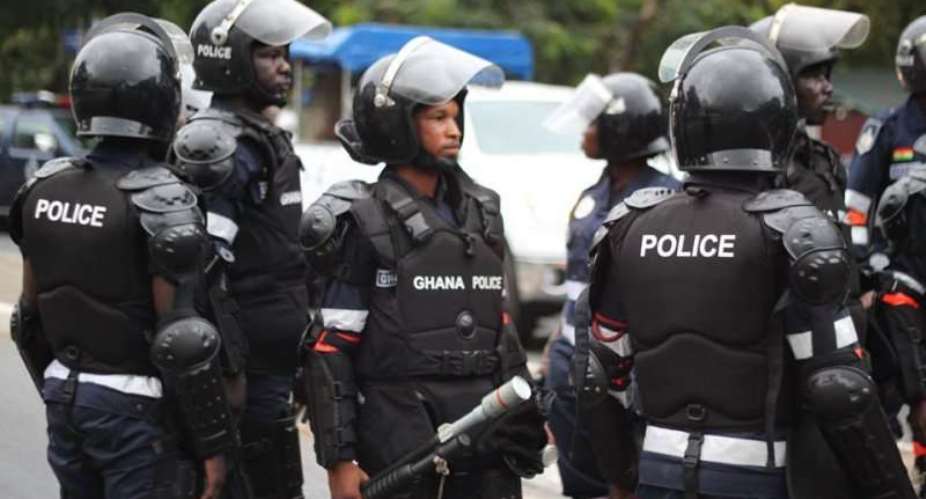The Government of Japan in collaboration with the United Nations Office on Drugs and Crime (UNODC), has presented two speed boats to the Ghana Police Service (GPS) as part of their commitment to increase security in Ghana's territorial waters.
The UNODC with the support of the Japanese government will also implement a one-year project to 'support maritime law enforcement in Ghana, Sierra Leone and Liberia to fight against maritime crime.'
In a key note address on Friday during the handing over ceremony at the Tema Regional Police Command, the Japanese Ambassador to Ghana, Mr Tsutomu Himeno, said the donation of the boats was part of a broader project worth 629,000 dollars to support maritime law enforcement in the fight against maritime crime in the West African sub-region.
He said, 'Reports of Maritime crime in the sub-region is on the increase, with frequent incident of ship hijacking, kidnappings of crew members as well as fishing violations such as pair trawling, occur on Ghana's sea.'
He observed that maritime crime such as piracy, fisheries crime, trafficking in persons, drugs and weapons was a major security and social concern and must be curbed to ensure stability and smooth conduct of legitimate business in the West African waters.
He observed that maritime security was indispensable for greater trade and investment relations for Ghana with other countries, and since Ghana was an important gateway to her in-land neighbours, proper development would occur only when there was peace and stability.
He added that, 'Japan is interested in ensuring peace and stability in the oceans as the sea serves as a major means of economic cooperation among nations.'
The National Programme Coordinator of the UNODC, Mr Bernard Henebeng Asamoah, said his outfit recognized that maritime crime posed a serious threat to the safety of seafarers, international trade and regional stability, adding that, 'As over 90% of global trade was carried out by sea, the economic effects of maritime crime can be crippling.'
He said, through the Global Maritime Crime Programme, UNODC had provided the Ghana Marine Police with the necessary support to strengthen its institutional and operational structure by offering an expert mentor on maritime law enforcement to work with the Marine Police for a set period.
He noted that the donation of the boats was one of the major activities under the project, in addition to procurement of other equipment and series of capacity building programmes already undertaken.
Receiving the boats, the Inspector General of Police, Mr David Asante-Apeatu, observed that the collaboration between GPS on one hand and the Republic of Japan and UNODC on the other hand had yielded a lot of mutual benefits 'but today, this package is exciting, motivating and strategic.'
He observed the important role onshore and offshore security could play in the operational capabilities of the GPS and therefore saw the donation as timely.
COP Asante-Apeatu appealed to 'individuals, organizations and agencies to consider in their annual budgets some space within their corporate social responsibilities to support the GPS, because security is a shared responsibility and if we tackle it collectively, we will be secured individually.'





 Akufo-Addo’s govt is the ‘biggest political scam’ in Ghana’s history – Mahama ja...
Akufo-Addo’s govt is the ‘biggest political scam’ in Ghana’s history – Mahama ja...
 Performance Tracker is not evidence-based — Mahama
Performance Tracker is not evidence-based — Mahama
 Four arrested for allegedly stealing EC laptops caged
Four arrested for allegedly stealing EC laptops caged
 $360 million IMF bailout not enough for Ghana – UGBS Professor
$360 million IMF bailout not enough for Ghana – UGBS Professor
 Shrinking Penis Allegations: Victim referred to trauma hospital due to severity ...
Shrinking Penis Allegations: Victim referred to trauma hospital due to severity ...
 Adu Boahen Murder: Case adjourned to May 9
Adu Boahen Murder: Case adjourned to May 9
 ‘I've health issues so I want to leave quietly and endure my pain’ — Joe Wise ex...
‘I've health issues so I want to leave quietly and endure my pain’ — Joe Wise ex...
 Let’s help seek second independence for Ghana before NPP sells the country – Law...
Let’s help seek second independence for Ghana before NPP sells the country – Law...
 New Force aims to redeem Ghana and West Africa — Nana Kwame Bediako
New Force aims to redeem Ghana and West Africa — Nana Kwame Bediako
 ‘I didn't say I would buy Ghana if voted against; I said I’ll buy it back from f...
‘I didn't say I would buy Ghana if voted against; I said I’ll buy it back from f...
